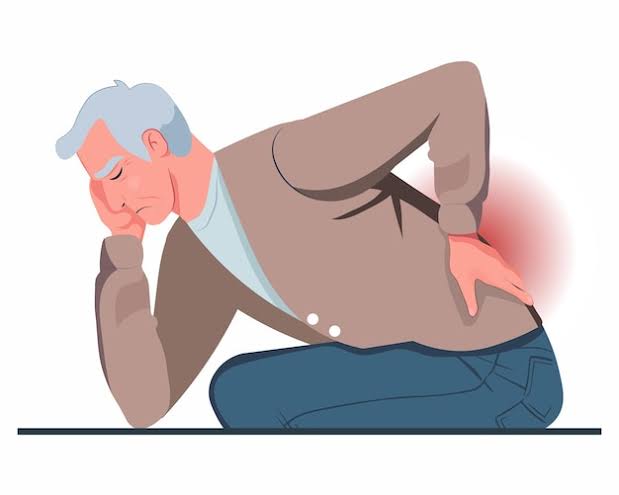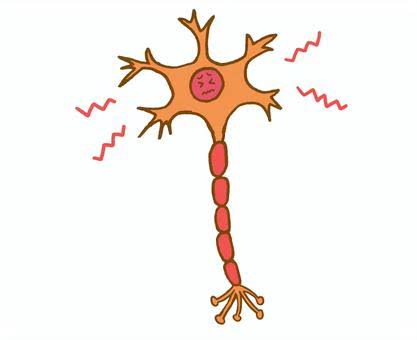Do you or a loved one have nerve pain? Neuropathic pain, another name for nerve pain, is a painful and incapacitating ailment that affects a great number of people all over the world. We will cover all you need to know about nerve pain in this thorough beginner’s guide, including its definition, pathophysiology, causes, risk factors, signs and symptoms, examinations, and even a thorough differential diagnosis.
However, we will not end there. We will also discuss how homeopathy may be used to treat and mitigate nerve pain. Homeopathy is becoming more and more popular as an alternative treatment for nerve pain because of its all-natural, holistic approach. We will also go over some nutritional tips, including what foods to avoid and what can help with nerve pain. So let us get started on the path of comprehending and effectively treating this illness.

Understanding Nerve Pain
Neuropathic pain, the medical term for nerve pain, is a complicated and frequently persistent ailment that results from injury or malfunction in the neurological system. Neuropathic pain arises directly from the nerves themselves, in contrast to nociceptive pain, which is caused by inflammation or tissue destruction. It can be explained as a malfunction of the neurological system that causes the brain to receive pain signals even when there is not a physical injury or outside stimulus.
The Pathology of Nerve Pain
Understanding the workings of the nervous system is crucial to understanding neuropathic pain. Your body uses nerves to communicate signals, and when they are harmed or malfunction, they might begin to deliver pain signals in error. Any point along the neural system, from the peripheral nerves leading to the brain and spinal cord, can experience this.
Numerous illnesses that impair the nerve system’s normal function, including diabetes, shingles, sclerosis, and even catastrophic traumas, can cause nerve pain.
Exploring the Roots of Nerve Pain
Understanding the underlying causes of nerve pain is essential to manage the illness successfully. Nerve pain can have many different causes. Typical causes include some of the following:
1. Diabetes: Diabetic neuropathy is caused by high blood sugar levels in diabetes, which can harm nerve fibers.
2. Infections: Disorders such as shingles or HIV can directly impact nerves, resulting in discomfort.
3. Injuries: Neuropathic pain can be brought on by trauma, accidents, or surgical procedures that destroy nerves.
4. Autoimmune Diseases: Inflammation can harm nerves, as in the case of sclerosis.
5. Medication: Neuropathy is a possible adverse effect of some medications, including antiretroviral treatments and chemotherapy.
6. Alcohol Abuse: Drinking too much alcohol can harm your nerves.
7. Vitamin Deficiencies: Neuropathic pain may result from a deficiency of important vitamins, particularly B vitamins.
The Risk Factors of Nerve Pain
There are several risk factors that can raise a person’s chance of experiencing nerve pain. Among these are:
1. Age: As people age, nerve pain becomes more common, frequently as a result of age-related nerve damage.
2. Medical Conditions: People who have autoimmune illnesses like diabetes are more vulnerable.
3. Genetics: Particular people may be more prone to neuropathic pain due to particular hereditary causes.
4. Medication: Extended usage of medicines with a history of nerve injury.
5. Lifestyle Decisions: Smoking and binge drinking too much might worsen nerve pain.
6. Accidents and Injuries: A history of severe injuries could make you more vulnerable.
The Signs and Symptoms of Nerve Pain
Nerve pain can have many different forms, as well as a wide range of sometimes confusing symptoms. Typical indications and manifestations of nerve pain consist of:
1. Burning Sensation: An ongoing tingling or burning feeling.
2. Pain Similar to Electric Shock: Sharp, sudden, shooting sensations.
3. Numbness: The afflicted part losing feeling or becoming numb.
4. Hypersensitivity: Enhanced responsiveness to changes in temperature or touch.
5. Weakness: Muscular weakness in the affected area.
6. Radiating Pain: Pain that travels along the nerve pathway in a radiating manner from the site.
7. Chronic Pain: Persistent, protracted discomfort.
The Investigations of Nerve Pain
In the event that you or a loved one is exhibiting indications of nerve pain, a thorough diagnostic procedure is vital. This frequently entails:
1. Medical History: Your doctor will ask about all of your past medical illnesses, surgeries, prescription drugs, and injuries.
2. Physical Examination: Certain symptoms linked to neuropathic pain might be found with the use of a physical examination.
3. Nerve Conduction Studies: By measuring the speed at which nerve signals are transmitted, these studies can identify nerve injury.
4. Electromyography (EMG): This test, which measures muscular electrical activity, can be used to diagnose nerve issues.
5. Imaging: Imaging techniques like MRI and CT scans may be utilized to visualize any physical damage or abnormalities in the neurological system.
6. Blood Tests: These can be used to find underlying conditions like vitamin deficits or diabetes.
Differential Diagnosis for Nerve Pain
Differential diagnosis is the technique of identifying a medical ailment based on its symptoms alone from other conditions. Since nerve pain frequently mimics other disorders, a precise diagnosis is essential. Conditions that may mimic neuropathic pain include:
1. Fibromyalgia: This condition is similar to widespread pain but does not involve the same nerves.
2. Muscle Spasms: Although muscle-related pain sometimes resembles nerve pain, it usually does not have the characteristic neuropathic features.
3. Arthritis: In some circumstances, joint pain might be mistaken for nerve pain.
4. Carpal Tunnel Syndrome: This more confined problem frequently manifests as hand symptoms.
5. Complex Regional Pain Syndrome (CRPS): This condition has unique characteristics but also some similarities to nerve pain.
6. Psychogenic Pain: Sometimes, psychologically based pain is misdiagnosed as nerve pain.
In order to effectively treat a patient, a diagnosis must be made, therefore when assessing a patient’s symptoms, medical practitioners must carefully investigate every potential cause.
Nerve Pain and Homeopathy
A holistic medical approach, homeopathy seeks to enhance the body’s natural healing capacities. It treats a variety of illnesses by using highly diluted materials from the mineral, plant, and animal kingdoms. Regarding nerve pain, homeopathy can provide a mild, organic method of treating the issue.
Homeopathic Remedies for Nerve Pain
1. Hypericum: Especially useful when tingling, burning, numbness, and flossy skin are present together with nerve pain associated with nerve damage in the fingers, toes, or nails. Ideal for conditions made worse by touch, tight quarters, moisture, cold, and fog. As a 3C tincture, administer by taking three to five pills three times daily.
2. Magnesium Phosphorica: Suitable for neuralgic pain that responds positively to warmth and worsens on the right side or when exposed to cold, touch, or during the night. A dosage of 1C to 12C is recommended, taking 3-5 pills three times a day.
3. Aconitum Napellus: This remedy is useful for acute nerve pain that causes tingling and numbness, especially in warm environments, at night, or while the affected side is lying down. It works best in open air settings and can be taken three times a day at a dosage of three to five pills in potencies ranging from 6 to 30.
4. Kalmia: Helpful for neuralgia characterized by downward-radiating shooting pains that are accompanied by numbness. When the discomfort is worsened by movement and reduced by being outside, this treatment works well. As a 6C tincture, take three to five pills three times a day.
5. Belladonna: Recommended for abrupt onset and reversible nerve pain that is accompanied by flushing and a blood rush. It works particularly well for right-sided discomfort, particularly when movements, touch, or lying down aggravate the problem. Three pills a day, with potencies ranging from 30C to 1M, are the recommended dosage.
These homeopathic treatments for nerve pain target a range of symptoms and triggers and provide a gentle, customized approach to pain management. To find the right remedy and dosage for your particular ailment, always seek advice from a certified homeopathic practitioner.
Foods to Improve and Avoid for Nerve Pain
When it comes to treating nerve pain, diet is very important. A balanced diet can support other forms of therapy, even though it is not a stand-alone treatment. The following food suggestions are for people who are experiencing nerve pain:
Meals to Get Better:
1. Omega-3 Fatty Acids: These can lessen pain and inflammation and are present in fatty fish like salmon.
2. Vitamin B-Rich Foods: Nuts, seeds, and leafy greens are good sources of vitamin B, which is necessary for healthy nerves.
3. Fruits and Veggies High in Antioxidants: Citrus fruits, berries, and vibrant veggies can all aid in lowering oxidative stress.
4. Turmeric: Known for its anti-inflammatory qualities, this spice contains curcumin.
5. Herbal Teas: Teas infused with ginger and chamomile might help relieve nerve pain.
6. Protein: Lean protein foods, such as tofu and chicken, help support the health of your muscles and nerves.
Foods to Avoid:
1. Processed Foods: Rich in trans fats and artificial additives, which can worsen inflammation.
2. Sugar and Refined Carbohydrates: These can exacerbate diabetic neuropathic pain and cause blood sugar rises.
3. Alcohol and Caffeine: For certain people, these substances might exacerbate symptoms and impair nerve function.
4. Excessive Salt: Consuming too much sodium might cause pain and fluid retention.
5. Dairy Products: Dairy can cause inflammation, and certain people may be sensitive to it.

Conclusion: Don’t be Nervous to Treat Nerve Pain!
In summary, treating nerve pain is a complex procedure that may involve dietary changes, complementary therapies like homeopathy, and traditional medical treatments. To ascertain the best course of action for your particular situation, it is imperative that you speak with a healthcare practitioner.
Nerve pain can be difficult, but many people can find relief and enhance their quality of life with the correct support, care, and treatments. When it comes to efficiently controlling your nerve pain, do not be afraid to ask for assistance and consider all of your alternatives.
Reach out to us for a Consultation.
This blog is for information purposes. It’s crucial to note that while homeopathy is a centuries-old practice with many adherents worldwide, always consult a qualified homeopath or medical professional before initiating any treatment.
For any queries, reach out to us at contact@homeopathic.ai





